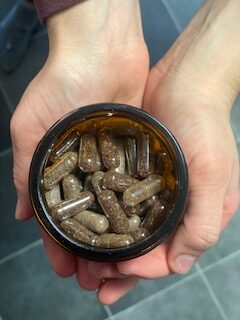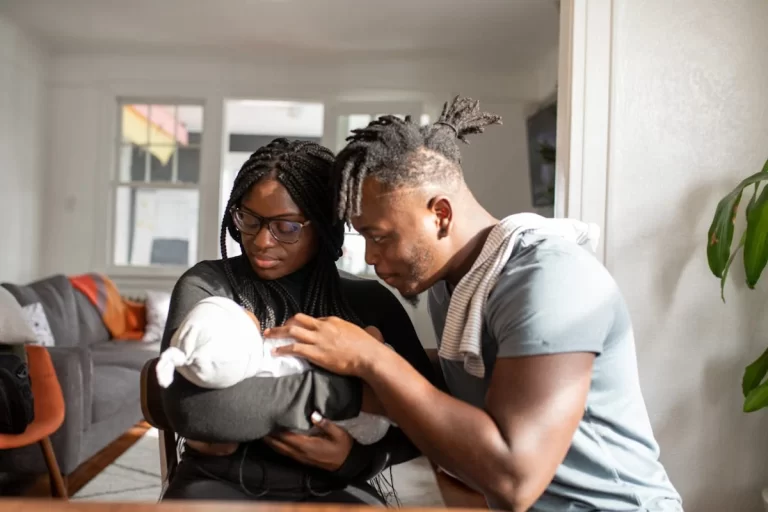
Placenta encapsulation is gaining traction day by day. We see celebrities as big advocates for placenta encapsulation (Hilary Duff, Kim Kardasihan and Kourtney Kardashian, to name just a few)
There are storefront shops popping up for processing placentas, and it’s only becoming more and more talked about.
Your placenta is an organ that is grown when you get pregnant. It provides oxygen and essential nutrients to your baby through the umbilical cord and is attached to the mother’s uterine wall. After giving birth to your baby, the placenta is birthed within 5 to 30 minutes.
There are great benefits of placenta encapsulation recorded, mostly anecdotally. One Gentle Seed client who used placenta encapsulation said “[It was the] best decision for me. I wanted to reflect on how I feel that having my placenta encapsulated helped me in my early days of postpartum. Would I do it again in hopes that it would support me in my postpartum journey again?
Yes, with the exception of including the tincture that is also offered. I declined to have it made but I am kicking myself for that since it is indefinitely stable and can be used when you feel you need extra support later on as needed (as explained to me). The other thing that really supported me was maintaining the vitamin regimen that I used during pregnancy so there weren’t any sudden changes in nutrition.”
Since the placenta is an organ, it contains a ton of iron (just like red meat would!). It is also packed full of hormones (oxytocin, estrogen, progesterone, to name a few) which help regulate postpartum depression, anxiety, etc. Consuming your placenta can also reduce bleeding, help speed up recovery, and increase milk production – it’s a wonder not everyone is jumping on board!
There are several options for consuming your placenta. Some folk choose to consume it raw, such as small bits at a time in a smoothie. Others choose to get it encapsulated by a professional. If you choose to get your placenta encapsulated, there are two methods: the raw method or the Traditional Chinese method. It is not recommended to use the raw method if one is prone to anxiety or depression, or has a caffeine sensitivity. What I see most often is people using the Traditional Chinese method, as steaming the placenta before the dehydration process allows the hormones and iron to be a little less potent (but still highly beneficial!).
So, how does this work? Who do you contact if you have questions or are interested in encapsulation? For starters, if you are in Cincinnati you can reach out to us here at Gentle Seed, as we have an encapsulator on staff! Or if you live near a city, there are probably several people in your area that process placentas for new mamas. Your placenta encapsulator will guide you to making the best decision for YOU. Once the time to give birth comes, your encapsulator will come to you (either at home or at the hospital) to pick up the placenta in a cooler, bring it home (or do it in your home) and bring your capsules back to you within 3-5 days. To get the best outcome from your capsules you should start taking them day five or six postpartum, which is the time that the “feel-good” hormones start to decline from giving birth. Ideally you will have a plan given to you to stretch the pills for up to six weeks.
What do you do after the six weeks, you ask? Another add-on to most placenta capsules is to get a tincture made! This is where a tiny piece of your placenta was cut off and placed into a vial of alcohol. The tinctures last forever… Seriously. You can use it after your capsules run out, once your period returns to control hormones, or even biologically with your own mother or daughter to help with their hormone regulation! See how amazing this organ is? If you passed on the placenta tincture, WishGarden Herbs also has amazing products to help postpartum (and throughout pregnancy). The ReBalance can really help with regulating your hormones once the capsules are gone, and you can ease your hormones back to wellness.
Sadly there is not much concrete research on placenta encapsulation, simply because the money is not there. But the good news is, there are currently a few studies being done, so hopefully in the next couple of years we will have a good set of data to help guide us in our decision making! I hope you can make a decision that is best for you and for your new family, and as always, we are here to help guide you!
~ Alyssa Overkamp, Gentle Seed
References:
https://www.ncbi.nlm.nih.gov/pmc/articles/PMC6138470/
https://placentaassociation.com/please-consider-eating-your-placenta-heres-why/
Supporting Your Child's Birth
We Believe In You
All Gentle Seed Doulas work in a team of two for your pregnancy, birth & postpartum. We match doulas and families by personality and availability for your estimated due date. We are excited to meet you and learn your birth and postpartum goals.
Working with a Sleep Consultant
True story of working with a Sleep Consultant A couple with a five-month-old baby was facing significant challenges due to sleep regression, leaving them exhausted …
Mastering Newborn Sleep: Essential Tips for Exhausted Parents
As new parents, navigating the world of newborn sleep can be overwhelming. Establishing healthy sleep habits from the start is crucial for your baby’s development …


